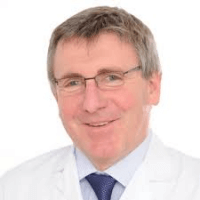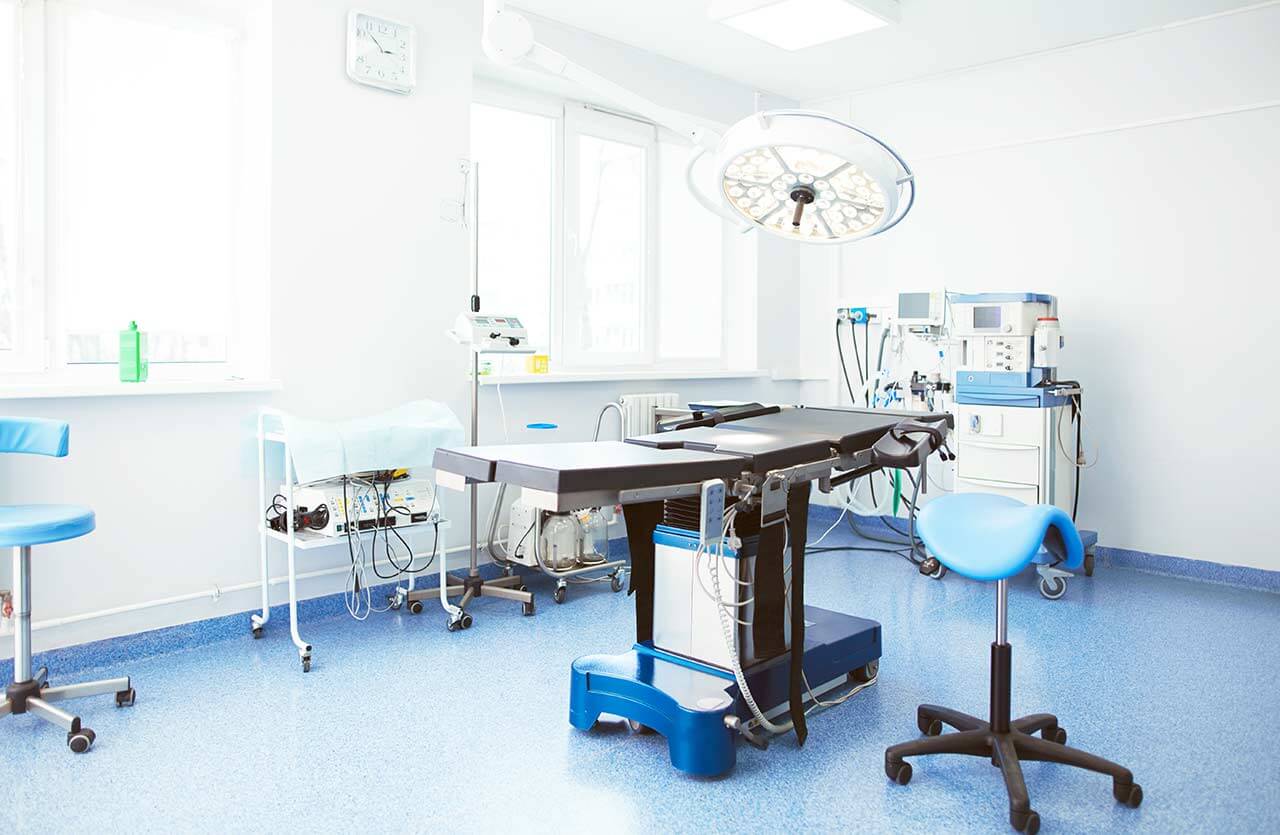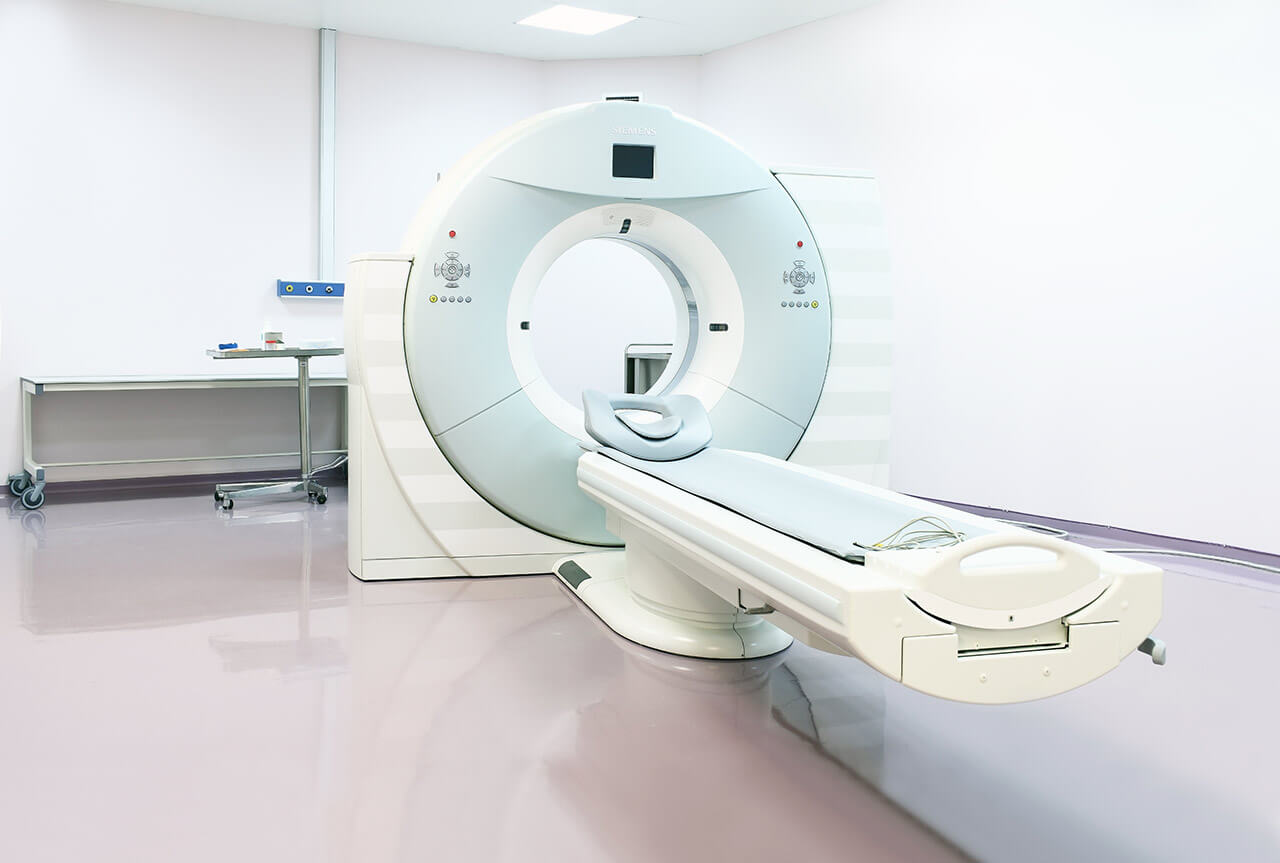
The program includes:
- Initial presentation in the clinic
- clinical history taking
- review of medical records
- physical examination
- laboratory tests:
- complete blood count
- biochemical analysis of blood
- TSH-basal, fT3, fT4
- lipase, amylase
- inflammation indicators (CRP, ESR)
- indicators blood coagulation
- abdominal ultrasound
- gastroscopy with biopsy
- ERCP
- analysis of hp (helicobacter pylori)
- endoscopic ultrasound
- CT/MRI abdomen
- symptomatic treatment
- control examinations
- the cost of essential medicines and materials
- nursing services
- nutrition recommendations
- full hospital accommodation
- explanation of future recommendations
Required documents
- Medical records
- Abdominal ultrasound (if available)
Service
You may also book:
 BookingHealth Price from:
BookingHealth Price from:
About the department
The Department of Gastroenterology at the Hirslanden Clinic Aarau offers the full range of medical services for patients with diseases of the gastrointestinal tract, including the esophagus, stomach, intestines, pancreas, liver and biliary tract. One of the important focuses of the department is the screening of colon cancer with the aim of preventing its development and early diagnostics. The department is fitted out with state-of-the-art equipment for ultrasound, colonoscopy, gastroscopy and other examinations. The department’s specialists work in close cooperation with abdominal surgeons for surgical treatment of gastroenterological pathologies. The Chief Physician of the department is Dr. med. Ralf Thomas Kurz.
The department specializes in the diagnostics and treatment of the following diseases:
- Stomach diseases
- Bowel disease (focus on bowel cancer)
- Liver diseases
- Pancreatic disease
- Gastroesophageal reflux disease
- Hemorrhoids
- Food intolerance
- Other diseases of the gastrointestinal tract
The department’s range of medical services includes:
- Ileocolonoscopy to diagnose
- Colon cancer
- Chronic inflammatory bowel disease
- Diverticulitis
- Stenosis
- Angiodysplasia posing a high risk of bleeding
- Intestinal ischemic syndrome
- Pathological changes caused by drugs
- Chronic diarrhea
- Therapeutic procedures during ileocolonoscopy
- Biopsy for suspected pathological changes in the mucous membrane
- Removal of polyps (cancer precursors)
- Dilatation for stenosis (stenting)
- Argon laser treatment for angiodysplasia
- Tumor labeling for colon cancer
- Therapeutic procedures during ileocolonoscopy
- Esophagoscopy, gastroscopy and duodenoscopy to diagnose
- Esophageal cancer
- Stomach cancer/lymphoma
- Esophageal varicose veins
- Stenosis due to tumors, inflammatory processes or external compression
- Angiodysplasia posing a high risk of bleeding
- Helicobacter -associated gastritis
- Foreign bodies
- Therapeutic procedures during esophagoscopy, gastroscopy and duodenoscopy
- Biopsy for suspected pathological changes in the mucous membrane
- Ligation for esophageal varices
- Removal of polyps (cancer precursors)
- Dilatation for stenosis (stenting)
- Argon laser treatment for angiodysplasia
- Tumor labeling for the detection of stomach and esophageal cancers
- Therapeutic procedures during esophagoscopy, gastroscopy and duodenoscopy
- Enteroscopy to diagnose
- Crohn's disease
- Small intestine cancer or gastrointestinal stromal tumor
- Stenosis due to tumors, inflammatory processes or external compression
- Angiodysplasia posing a high risk of bleeding
- Therapeutic procedures during enteroscopy
- Biopsy for suspected pathological changes in the mucous membrane
- Removal of polyps (cancer precursors)
- Dilatation for stenosis (stenting)
- Argon laser treatment for angiodysplasia
- Tumor labeling for small intestine cancer
- Therapeutic procedures during enteroscopy
- Capsule endoscopy to diagnose
- Crohn's disease
- Small intestine cancer or gastrointestinal stromal tumor
- Stenosis due to tumors, inflammatory processes or external compression
- Angiodysplasia posing a high risk of bleeding
- Capsule endoscopy cannot be used for any therapeutic procedures
- Endoscopic retrograde cholangiopancreatography to diagnose
- Choledocholithiasis before and after cholecystectomy
- Pancreatic cancer
- Bile duct cancer
- Bile duct inflammation
- Therapeutic procedures during endoscopic retrograde cholangiopancreatography
- Biopsy
- Papillotomy
- Removal of bile duct stones
- Lithotripsy for bile duct stone fragmentation
- Dilatation for stenosis using stents (plastic or metal ones)
- Therapeutic procedures during endoscopic retrograde cholangiopancreatography
- Endosonography
- Hydrogen breath test
- Ultrasound scanning of the liver, gallbladder, bile ducts, pancreas, spleen, abdominal aorta, kidneys and bladder, including dopplerography of the abdominal vessels
- Impedance–pH monitoring test
- Other medical services
Curriculum vitae
Higher Education and Postgraduate Education
- 2004 Specialization in Gastroenterology, Swiss Medical Association (FMH).
- 1997 Board certification in Internal Medicine.
- 1995 Training in Emergency Medicine.
- 1990 Thesis in Nutritional Medicine, University Hospital Fribourg.
- 1990 Admission to medical practice.
- 1983 - 1990 Study of Human Medicine, University of Freiburg.
- 1981 - 1983 Study of Chemistry, University of Freiburg.
Professional Career
- Since 2012 Work in the Department of Gastroenterology at the Hirslanden Clinic Aarau.
- 2005 - 2012 Senior Physician at the Center for Internal Medicine at the Hirslanden Clinic Aarau.
- 2002 - 2005 Leading Senior Physician, Department of Gastroenterology, District Hospital Bad Säckingen.
- 1991 - 2002 Assistant Physician, Department of Internal Medicine, District Hospital Lörrach.
- 1989 - 1991 Assistant Physician, Department of Internal Medicine, District Hospital Schopfheim.
Memberships in Professional Societies
- Association of Internists of the Canton of Aargau at the Swiss Medical Association (FMH).
- Medical Association of the Canton of Aargau (AÄV).
- Swiss Society of Gastroenterology (SGG).
- German Society for Gastroenterology, Digestive and Metabolic Diseases (DGVS).
- German Society of Internal Medicine (DGMI).
- Professional Association of Internists.
- Swiss Medical Association (FMH).
- Swiss Society of Internal Medicine (SGAIM).
Photo of the doctor: (c) Hirslanden AG
About hospital
The Hirslanden Clinic Aarau enjoys the status of one of the largest and most successful private medical facilities in Bern and Zurich. The clinic is part of the Hirslanden Network known in Europe, which is a provider of first-class medical services in Switzerland.
The main areas of specialization of the clinic in Aarau include cardiology, cardiac surgery, abdominal surgery, urology, oncology, neurosurgery, spinal surgery and orthopedics. The Department of Obstetrics annually delivers more than 700 babies. The high professionalism of the clinic’s medical staff, as well as the excellent technical base, make it possible to successfully cure not only common pathologies, but also very complex clinical cases.
All efforts of doctors and nursing staff of the clinic are focused on meeting the needs of patients and best possible restoration of their health. The work with patients is based on an individual approach to each clinical situation. The clinic has 155 beds for inpatient treatment. The surgical treatment is provided in 7 operating rooms with all the necessary surgical instruments, computer monitoring systems, navigation devices, robot-assisted systems for sparing laparoscopic operations.
Since 2010, the clinic introduced a unified quality management system, which includes all clinics in the Hirslanden Network. The clinical performance indicators and patient reviews are provided in the annual reports available to all those who want to see them. At the moment, the clinic rating is 8.9 out of 10 possible points – based on patient reviews. The clinic is also the first and only health facility in the canton of Aargau, which medical services were certified in accordance with the new ISO 2016 standards.
Photo: (с) depositphotos
Accommodation in hospital
Patients rooms
The patients of the Hirslanden Clinic Aarau live in cozy rooms equipped with everything necessary for a comfortable stay in the hospital. Each patient room has an ensuite bathroom with shower and toilet. The standard patient room includes an automatically adjustable bed, a bedside table, a wardrobe with lockers for storing personal belongings, a hairdryer, a table and chairs for receiving visitors, a TV and a radio. The patient rooms also have Wi-Fi access. If desired, the patients can live in enhanced-comfort patient rooms, which are additionally equipped with a safe, a refrigerator and upholstered furniture.
Meals and Menus
The patient and the accompanying person are offered a daily choice of three menus. If you are on a specific diet for any reason, you will be offered an individual menu. Please inform the medical staff about your dietary preferences prior to the treatment.
Further details
Standard rooms include:
Religion
The religious services can be provided upon request.
Accompanying person
During the inpatient program, an accompanying person may stay with the patient in the patient room or at a hotel. Our managers will help you choose the most suitable option.
Hospital accommodation
During the outpatient program, you can live in a hotel at the clinic.
Hotel
During the outpatient program, you can live in a hotel of your choice. Managers will help you choose the most suitable options.



